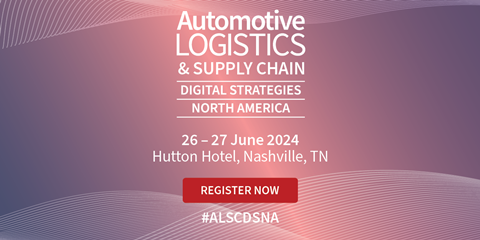The quest for one source of truth in Volkswagen Group’s digital supply chain
Group Logistics is accelerating digitalisation, from cloud-based systems to vehicle logistics, with the aim of improving data quality and better leveraging visibility, insights and AI applications.

Group Logistics is leading the ‘One Log’ digitalisation project, integrating many logistics functions to a cloud-based ERP system that will help it better leverage data and applications
Volkswagen Group Logistics series: Simon Motter on securing the supply chain
-

How Group Logistics is overcoming crises and shaping Volkswagen's future supply chain
-

Ready for any crisis, anywhere in Volkswagen Group’s supply chain
-

The electrifying influence of logistics
-

The many roads, fuels and tech leading to zero emission logistics at Volkswagen Group
-

The quest for one source of truth in Volkswagen Group’s digital supply chain
Digitalisation has long been a core function at Volkswagen Group Logistics, including how it manages its returnable container fleet, exchanges data with logistics providers and analyses network synergies. But that focus has accelerated in recent years across transport areas – such as vehicle logistics – and wider supply chain management and cross-functional topics.
Under head of Group Logistics Simon Motter, a steering committee is now focused on digitalisation, leading on strategic aims like gaining greater transparency across the supply chain (including at tier-N supplier levels), mining value from data, as well as specific projects, such as the rollout of new tools in bottleneck management, critical parts inventory and demand capacity management.
One of the most important projects is the ‘One Log’ transformation, in which Volkswagen is migrating many legacy systems into the cloud-based SAP 4/Hana enterprise tool. That will include transport modules, scheduling, inventory management, warehouse management, plant logistics flows and more, implemented in stages across different plants, brands and regions. Group Logistics is acting as the central coordinator, involving experts across logistics functions at brands, plants and central IT, Porsche subsidiary MHP, as well as SAP.
“It is a genuinely cross-brand, cross-functional project, and our role is primarily one of management, but also to bring together the right experts from the plants and brands, and to motivate everyone because everyone wants to use it eventually,” Motter says.

Under Simon Motter, Group Logistics has special steering groups dedicated to digitalisation, including for vehicle logistics
At the core of the project – which won a key award last year for team culture from Automotive Logistics -sister publication, automotiveIT – puts considerable focus on agreeing standards and harmonising processes to ensure that systems in the cloud can be used most effectively. Motter says that whilst some of the migration is to replace legacy tools, it will also provide new capabilities, including greater transparency, a faster rollout of solutions, and process standardisation.
“It’s not just about the tools, new applications and functionality, but about good data management and building sensible data lakes for analysis,” Motter says. “Eventually, the goal is to have a much better, single source of truth.”
One element of strengthening and securing data not only across the group, but with its suppliers, is Catena-X. The consortium project, which includes a growing number of OEMs (including Volkswagen Group), suppliers and partners, establishes data standards and tools to safely share data, with solutions ranging from sub-tier suppliers to tracing battery raw materials.
“Catena-X will also be important for logistics, as we hope we will be able to look even deeper into the supply chain, especially to areas of potential bottlenecks, such as the example of semiconductors,” says Motter.
“We know now that it is necessary to have this deep visibility, especially in a crisis, including across procurement, suppliers and logistics. With these new tools, I have real hope that there is a solution that is not just a dream.”
Building on data standards and integrity will help Group Logistics and its stakeholders to better leverage data insights and analytics. The group is testing logistics systems with AI functionality, for example in network optimisation or risk analysis to some extent. But it will also explore new opportunities in generative AI. Simon Motter isn’t ready to specify which areas this might best apply, though he suggests forecasting and managing inventory levels are likely to be relevant.

Volkswagen Group Logistics is accelerating digitalisation of outbound vehicle logistics, including rolling out a new order management system
Digitalising finished vehicle logistics
Group Logistics has also established a specific digitalisation department for finished vehicle logistics, which has worked on projects including developing a more professional way to monitor and forecast vehicle logistics capacity demand. It is also currently rolling out a new order management system for its used car business, which it will gradually apply to new vehicles. “With this system we will make both yard management and the entire order process, including transport, much more transparent,” says Motter.
Simon Motter also sees opportunities to make better use of connected vehicle and autonomous features in vehicle logistics operations – a development that has happened more slowly than many across the industry had hoped. Nevertheless, he sees a clear path to using autonomous features in yards, especially for handling, parking and processing at plants and ports.
“I don’t think that we will see vehicle loading and unloading themselves on trucks very quickly, however vehicle movements in enclosed areas are on the horizon,” he says. “We are planning to launch something on a project basis in the near future.”





